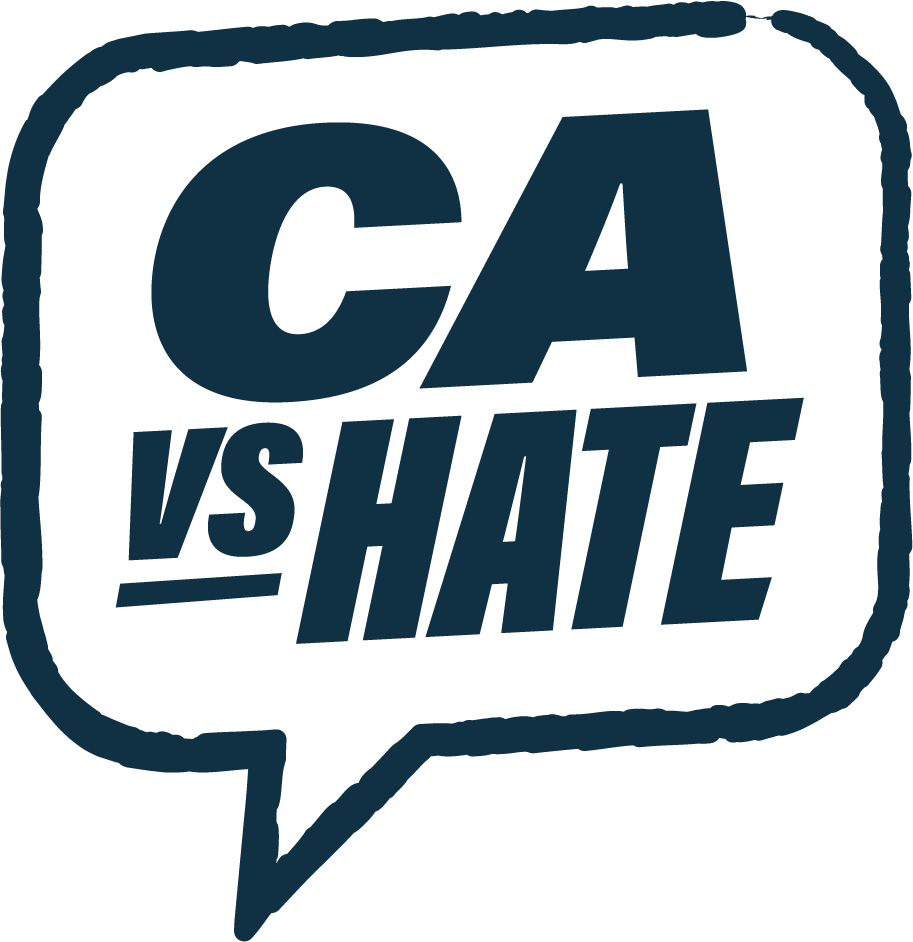Why People Might Be Hesitant to Report Acts of Hate
The California DOJ recently released a report that revealed hate crimes reported to law enforcement in California rose 20%, jumping from 1,763 in 2021 to 2,120 in 2022.
While this report clearly indicates that a growing number of hate crimes are being reported to law enforcement, California vs Hate, along with many community organizations and government agencies, has heard from residents that people are still hesitant to report acts of hate for a number of reasons, ranging from fear of retribution from the perpetrator, to mistrust of agencies, and more.
We’ve been meeting with community organizations across California about why different communities might have specific hesitations around reporting so that we can ensure we can address those concerns in the way that California vs Hate operates.
Below are a few key takeaways from state and community leaders on this issue.
Why do you think communities might be hesitant to report acts of hate and what do you think can help address those concerns?
Kevin Kish, Director, California Civil Rights Department:
We know that hate crimes have historically been underreported across the country. Whether it’s because of distrust of law enforcement, fear of immigration consequences, confusion about whether something can be reported, language access issues, or concern that nothing will be done, there is a lot that can get in the way of people getting support when they’ve been targeted for hate.
Through California vs Hate, we’re taking direct targeted steps to address these types of barriers to reporting. A few examples:
First, you don’t have to be a legal expert to get help. If you’ve been targeted because of who you are, whether it rises to the level of a crime or not, you can report and get support through CA vs Hate.
Second, CA vs Hate isn’t just a place where you report and that’s it. Every person who reaches out is eligible for ongoing care coordination where staff will follow up with you and directly help walk you through getting the support you need. Staff are trauma-informed, culturally competent, and have access to interpretation in more than 200 languages.
Third, you can report anonymously, and we’re not affiliated with criminal law enforcement. If you don’t want to report to the police, you don’t have to do it. If you want to learn more about what happens if you decide to report to law enforcement, we can help share information about the process. We’re here to support people based on what they need.
Fourth, and perhaps most importantly, we’re working with community-based organizations who have earned the trust of their communities to inform all our work and to partner with us in providing services.
Bottom line: Our work is ongoing, it’s dynamic — and we’ll keep doing our part to learn and better respond to the needs of our state’s residents. A hotline only helps when people feel comfortable using it.
Sophie Cuevas, Care Coordinator, 211 Hotline:
When I talk to people who have suffered acts of hate, they often talk about how they want to help prevent other people from experiencing the same thing. Many people don’t realize how reporting can help those who come after you. By documenting incidents and connecting people with resources, we can help make change in communities. So even if some might be hesitant to report, I think by sharing the whole picture of how reporting can support others, we can demonstrate the importance of coming forward.
In many cases, it’s a trust issue. I was working with a man who was undocumented and was afraid to report an incident. So, I told him, “I understand your concern and your fear. But there could be someone behind you that is enduring a similar situation, and by reporting, you can help those who come after you.”
Sometimes it's a cultural thing when people choose not to or are reluctant to report. Some people don’t feel like they will be believed, and others think that they’re better served by going directly to law enforcement to report.
We have to build that trust and educate. We need to build that trust and report from the get-go.
Ariel Bustamante, Capacity Building Manager, Los Angeles LGBT Center:
We’ve seen an increase in anti-LGBTQ+ rhetoric and acts of hate across the country, including in California with much of the harmful language and even legislation being directed at transgender and nonbinary folks. At the same time, LGBTQ+ folks, and even more so LGBTQ+ BIPOC, have often been historically underserved by service providers so there is often a lack of trust that services will be safe, affirming, and responsive. This is especially true when there is the possibility of the legal system being involved.
It is critical that providers are clear about their capabilities and limitations, and work to bridge gaps in their agency’s capacity to serve LGBTQ+ folks. LGBTQ+ people are everywhere and are accessing services across the state, so it’s important that agencies understand that and establish best practice knowledge and skills to serve the community. Agencies should also be versed in providing appropriate referrals.
In addition to transparency and commitment to growth, it is important that witnesses or victims of an act of hate understand that law enforcement do not need to be involved for them to receive supportive care. This can relieve the fear an individual may have based on personal or historical experiences with law enforcement while reinforcing their dignity and autonomy.

